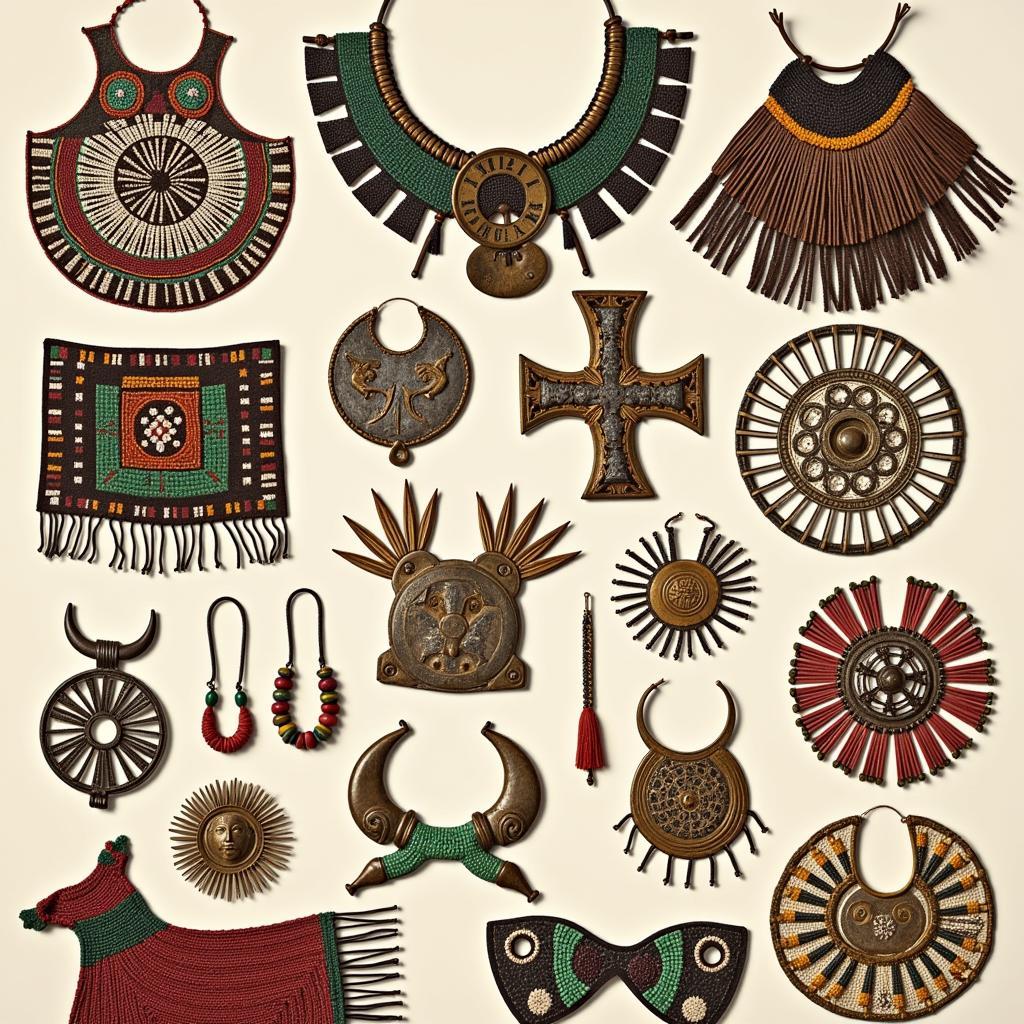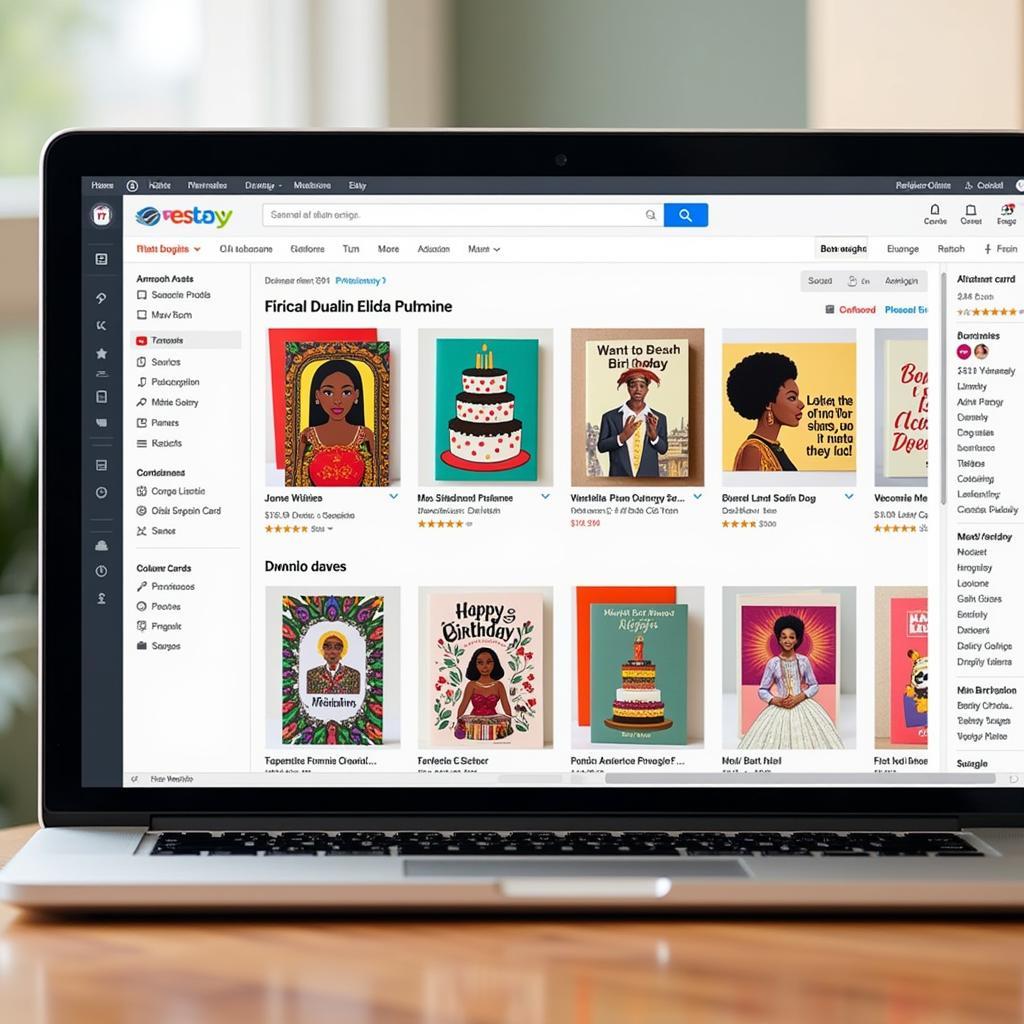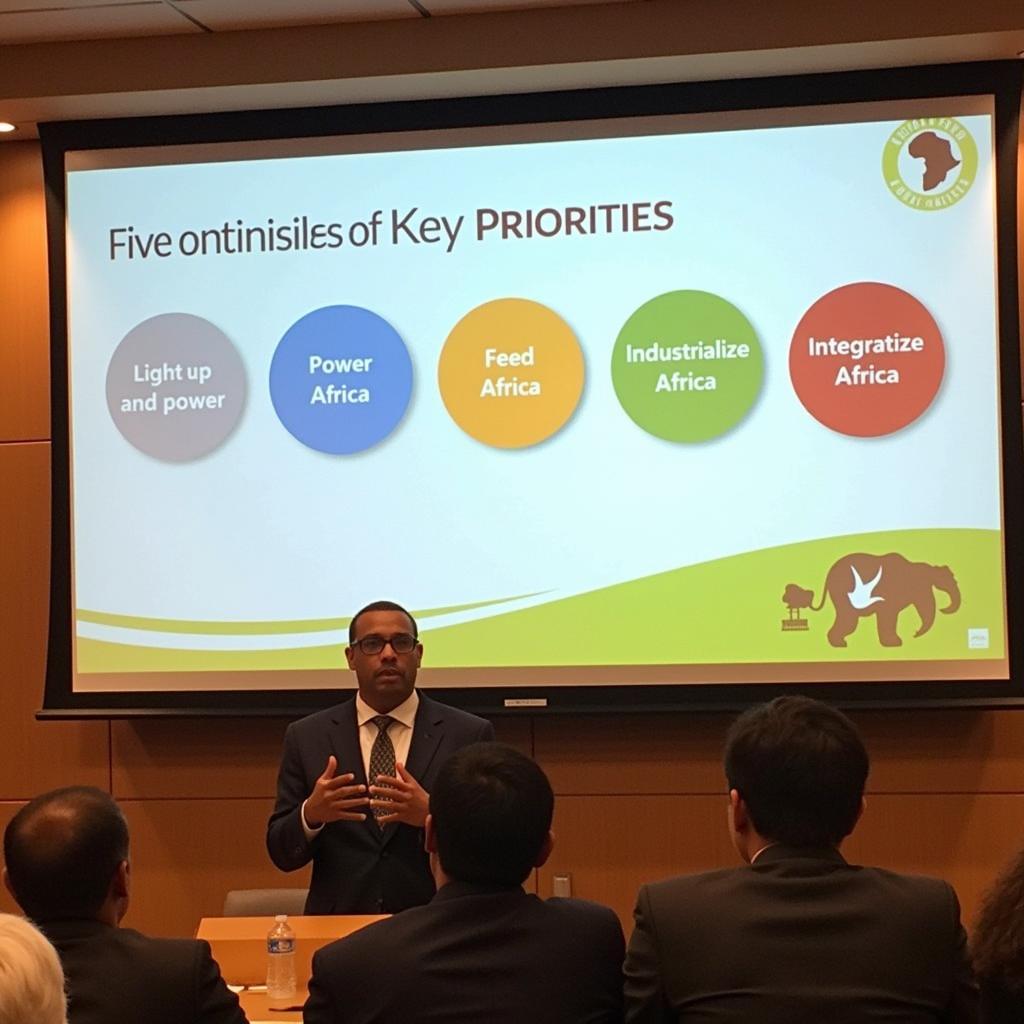The Soulful Sounds of an African Lady Playing Guitar
An African Lady Playing Guitar is a powerful image, evoking a rich tapestry of cultural heritage, musical innovation, and personal expression. From the bustling markets of Nairobi to the serene landscapes of the Sahara, the guitar has found its place in the heart of African music, often played by talented women who weave stories and emotions into every chord.
The Guitar’s Journey to Africa: A Musical Migration
The guitar, though not indigenous to Africa, has become deeply ingrained in the continent’s musical landscape. Brought by European explorers and traders, the instrument was quickly adopted and adapted by African musicians, who infused it with their own unique rhythms, melodies, and styles. This fusion of musical traditions created entirely new genres, enriching the global musical vocabulary. Women have played a significant role in this evolution, often using the guitar as a vehicle for storytelling, social commentary, and personal reflection.
The Rise of Female Guitarists in Africa
Across the diverse musical landscape of Africa, women are increasingly picking up the guitar and making their voices heard. From the highlife sounds of West Africa to the mbaqanga rhythms of South Africa, female guitarists are breaking down barriers and challenging traditional gender roles. They are not only performers but also composers, arrangers, and bandleaders, shaping the future of African music. Their influence is not just limited to their respective countries; many are gaining international recognition, showcasing the vibrant sounds of Africa to a global audience.
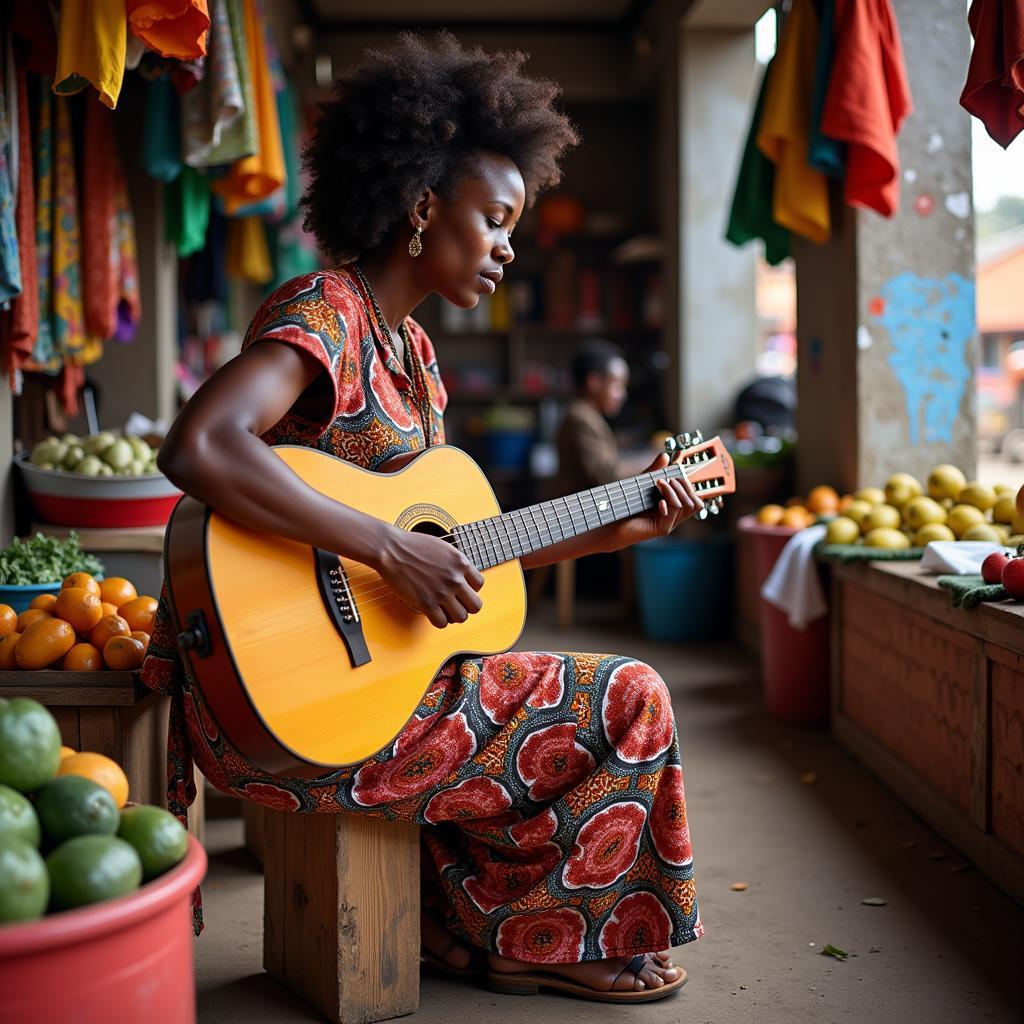 African Lady Playing Guitar in a Bustling Market
African Lady Playing Guitar in a Bustling Market
Different Genres, Different Styles: A Melodic Tapestry
The versatility of the guitar allows it to be incorporated into a wide range of African musical genres. In countries like Mali, the kora, a traditional stringed instrument, shares similarities with the guitar, creating a unique blend of old and new. In South Africa, the guitar is a prominent feature in genres like maskandi and kwela, often accompanying intricate vocal harmonies and rhythmic dance. Across the continent, female guitarists are experimenting with these diverse styles, pushing the boundaries of traditional music and creating their own distinctive sounds.
The Power of Music: More Than Just Entertainment
Music in Africa is not just entertainment; it’s a powerful tool for communication, education, and social change. It’s used to tell stories, preserve history, and express emotions. African lady playing guitar often use their music to address social issues, advocate for women’s rights, and inspire positive change in their communities. They are not just musicians; they are storytellers, activists, and cultural ambassadors.
Learning From the Masters: Inspiration and Influence
Aspiring female guitarists in Africa have a wealth of role models to draw inspiration from. Legendary artists like Fatoumata Diawara and Sona Jobarteh are paving the way for the next generation of musicians, demonstrating the power of music to transcend borders and connect people. These women are not only talented musicians but also strong advocates for cultural preservation and social justice.
The Future of African Guitar: A Bright Horizon
The future of African guitar music is bright, with a growing number of talented female guitarists emerging onto the scene. They are experimenting with new sounds, blending traditional styles with modern influences, and creating music that is both deeply rooted in their heritage and relevant to the present. These artists are not just musicians; they are innovators, storytellers, and cultural ambassadors, sharing the rich musical traditions of Africa with the world.
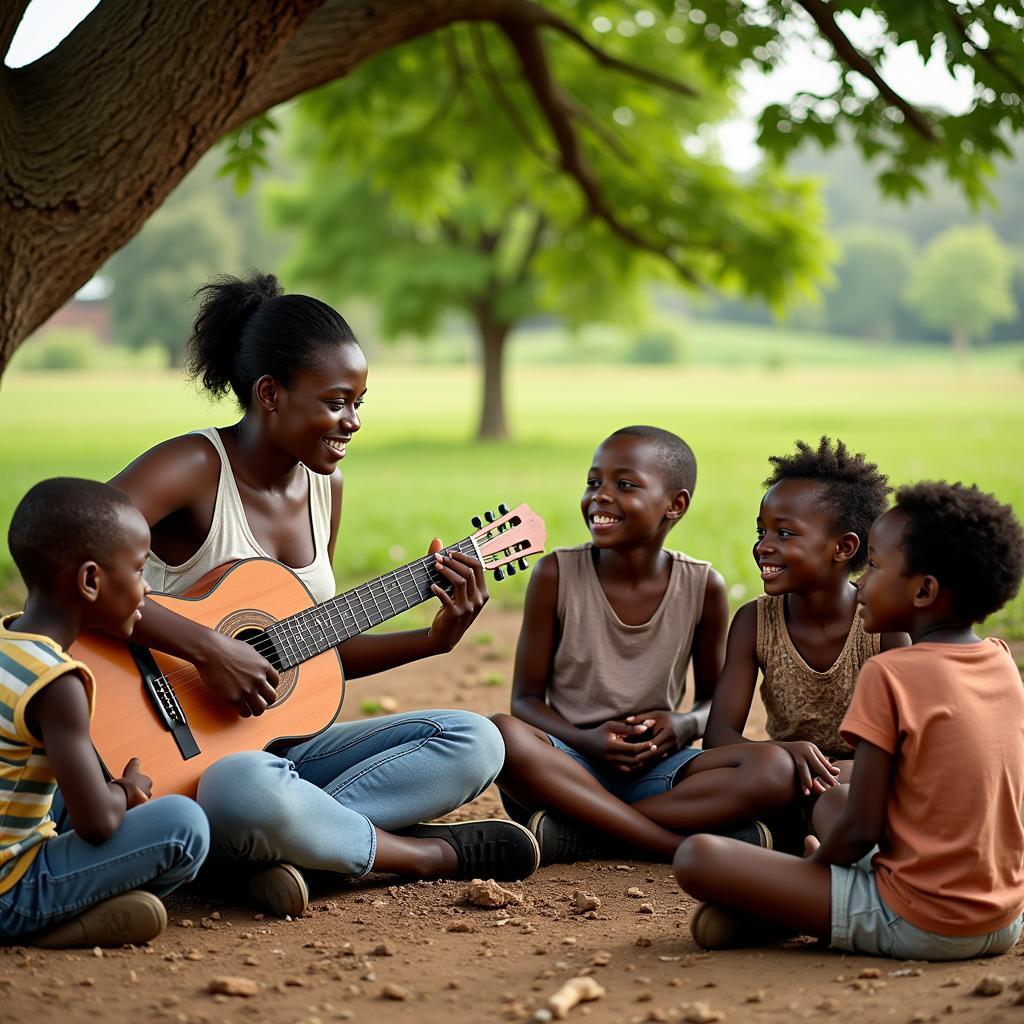 African Lady Teaching Children to Play Guitar
African Lady Teaching Children to Play Guitar
Conclusion: The Enduring Legacy of an African Lady Playing Guitar
The image of an African lady playing guitar represents more than just a musical performance; it symbolizes the resilience, creativity, and cultural richness of Africa. These talented women are shaping the future of African music, using their voices and their instruments to inspire, educate, and connect people across the globe. Their music is a testament to the power of art to transcend borders and unite us in our shared humanity.
FAQ
- What are some popular genres of African music that feature the guitar? Highlife, mbaqanga, maskandi, and kwela are just a few examples.
- Who are some influential female African guitarists? Fatoumata Diawara and Sona Jobarteh are two prominent examples.
- Where did the guitar originate? The guitar originated in Spain.
- How has the guitar been adapted in African music? African musicians have incorporated their own unique rhythms, melodies, and styles into guitar playing, creating new genres.
- What is the cultural significance of music in Africa? Music is a powerful tool for communication, education, and social change in Africa.
- How can I learn more about African music? There are numerous online resources, documentaries, and books available. Attending live performances is also a great way to experience the richness of African music.
- Are there opportunities to support African musicians? Yes, you can support African musicians by purchasing their music, attending their concerts, and donating to organizations that promote music education in Africa.
Common scenarios and questions:
What if I want to learn to play African guitar music? Many resources are available online and in person to learn to play various styles of African guitar music.
Where can I see live performances of African guitarists? Check local listings and cultural centers for performances, as well as online streaming platforms.
Further Reading:
Explore our other articles on African music, culture, and art. You can also find more information on specific artists and genres within our website.
Call us at +255768904061, email us at [email protected], or visit us at Mbarali DC Mawindi, Kangaga, Tanzania. Our customer service team is available 24/7.
